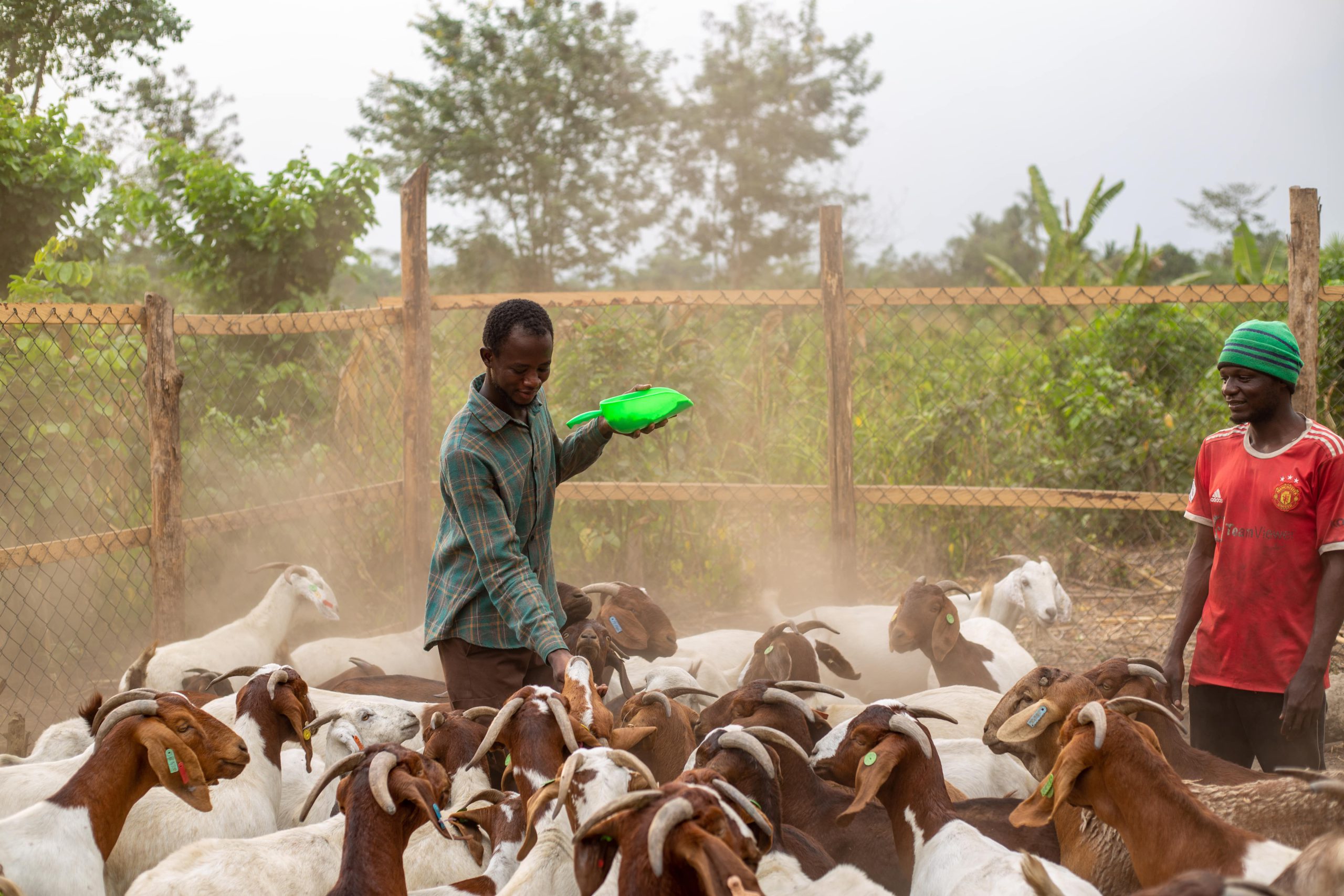Across Africa, livestock farming is more than an agricultural sub-sector: it is a lifeline for millions of households, a cornerstone of rural economies, and a key driver of national food security. Yet, one of its most critical building blocks, livestock feed, remains a persistent vulnerability.
By Farming In Africa (FIA), ons glo dat achieving food sovereignty in Africa begins with securing the livestock value chain, and that starts with locally produced feed. Our commitment goes beyond providing innovative feed solutions or hosting trainings — it’s about addressing the systemic weaknesses that threaten farmer independence, market stability, and national security.
The Hidden Risk: Overdependence on Feed Imports
Many African countries rely heavily on imported livestock feed and feed ingredients. This dependence comes with high costs, not just financially, but strategically:
- Price Volatility: Global market fluctuations make imported feed prices unpredictable, eroding farmers’ profit margins.
- Supply Disruptions: Political instability, pandemics, or trade restrictions can cut off essential feed supplies overnight.
- Foreign Currency Drain: Importing feed consumes valuable foreign exchange that could be invested in local agricultural infrastructure.
When a country cannot feed its livestock without imports, it risks food insecurity, inflated meat and dairy prices, and a weakened rural economy.
Feed and National Security
Food security is national security. If livestock farmers can’t access affordable, reliable feed, domestic production suffers, leaving nations vulnerable to external supply shocks.
Deur producing feed locally, countries build resilience against global market turbulence and geopolitical pressures. Just as nations invest in energy independence to safeguard their economies, Africa must invest in feed independence to safeguard its food systems.
Empowering Farmers Through Independence
At the farmer level, locally produced feed is transformative:
- Lower Costs: Reduces reliance on expensive imports, making livestock farming more profitable.
- Year-Round Availability: Mitigates seasonal feed shortages that lead to livestock losses.
- Custom Formulations: Tailors feed blends to local climate, livestock breeds, and nutritional needs for improved productivity.
This independence gives farmers greater control over their operations, enabling them to invest confidently in herd expansion, technology adoption, and long-term sustainability.
The FIA Approach: From Vision to Action
By Boerdery in Afrika, our mission is to strengthen the livestock value chain by tackling root causes, not just symptoms. Our work in feed production and training is part of a broader vision:
- Establishing sustainable local feed systems that are cost-effective and scalable.
- Training over 2,000 farmers and farm workers in efficient feed management and livestock nutrition.
- Designing over 50 farms to integrate on-site feed production, reducing dependency and boosting resilience.
By Boerdery in Afrika, our commitment to feed independence is not theoretical, it’s practical and visible on the ground. We’ve invested in producing our own local feed at every stage of the value chain, starting with the cultivation of drought-resistant and highly nutritious Semanhyia grass. This resilient grass thrives even under challenging weather conditions, providing a reliable, year-round source of quality forage for livestock.
From this foundation, we process the Semanhyia grass into high-quality hay, an affordable, accessible solution for farmers to bridge seasonal feed gaps. Beyond hay, we have expanded into livestock pellet feed, formulated to deliver balanced nutrition for optimum growth, milk production, and animal health. To further support livestock performance, we produce supplementary feeds such as salt licks and mineral blocks, ensuring animals receive the essential micronutrients they need for immunity, fertility, and weight gain.
By building this integrated feed production system, FIA is showing that African farmers can control their feed supply, improve productivity, and reduce dependency on imports — all while keeping value within local economies. This is how we move from vision to action, creating a stronger, more self-reliant livestock industry for Africa.
We see feed production not as an isolated business activity, but as a strategic intervention for food sovereignty — one that empowers farmers, stabilizes markets, and builds national resilience.
The Bigger Picture: Food Sovereignty for Africa
Food sovereignty goes beyond producing enough food — it’s about control. It means African farmers deciding what they grow, how they feed their livestock, and how value is retained within local economies.
By investing in local feed production, Africa can:
- Reduce reliance on imports.
- Strengthen rural economies.
- Create jobs across the value chain — from feed crop farming to processing and distribution.
- Stabilize prices for consumers and ensure consistent supply.
Our Call to Action
The path to Africa’s food sovereignty runs through its feed mills, hay fields, and silage pits. If we get livestock feed right, we secure the foundation for the continent’s meat, dairy, and poultry industries — and by extension, its nutrition security and economic stability.
By FIA, we are committed to leading this transformation — working with farmers, policymakers, and industry partners to make locally produced livestock feed not just an option, but the standard.
Because when Africa can feed its animals, it can feed its people.
